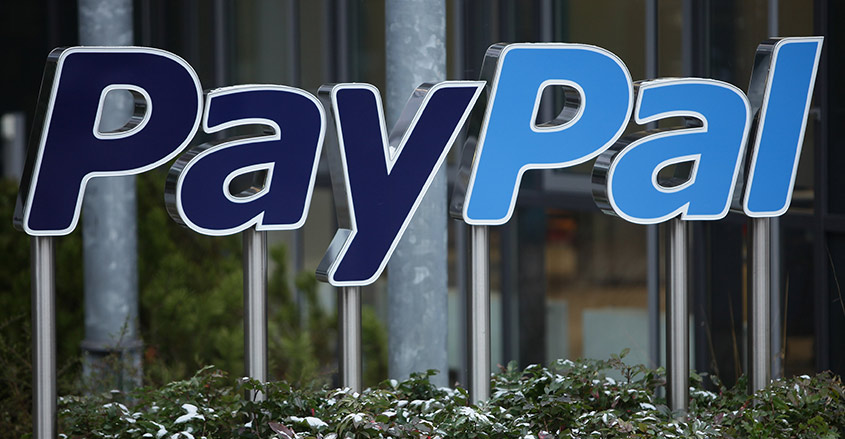Online payments giant PayPal has filed a patent for a system designed to improve the speed of cryptocurrency payments by several orders of magnitude, allowing transactions to occur in milliseconds instead of minutes.
An application for an “Expedited Virtual Currency Transaction System” was published March 1 by the U.S. Patent and Trademark Office.
It describes a system where private keys — the strings of numbers and letters used to transact or otherwise control one’s cryptocurrency holdings — are swapped from a buyer to a seller on the ledger.
The system could narrow the time it takes for payments to go through between a consumer and a merchant, thus avoiding the process of sending a transaction and waiting for it to be included in the next block on the network.
PayPal is proposing a way to create secondary wallets with their own unique private keys for buyers and sellers created, specifically for a single transaction.
An excerpt from the filing stated:
“The systems and methods of the present disclosure practically eliminate the amount of time the payee must wait to be sure they will receive a virtual currency payment in a virtual currency transaction by transferring to the payee private keys that are included in virtual currency wallets that are associated with predefined amounts of virtual currency that equal a payment amount identified in the virtual currency transaction.”
The application shows that the payment processing giant has developed a system that allows senders and receivers to swap private keys rather than sending coins over the network.
Bitcoin, for instance, is currently mined approximately every 10 minutes, extending the minimum execution time and bottlenecking mass acceptance.
From the filing:
“In many transaction situations, a 10 minute wait time will be too long for payers and/or payees, and those payers and/or payees will instead choose to perform the transaction using traditional payment methods rather than virtual currency. Issues like this have slowed the adoption of virtual currencies despite their advantages.”
Thiel factor
Some cryptocurrencies have tried to solve this bottleneck by shortening block times, though users are still subject to higher fees and slower confirmation when networks become congested.
Under PayPal’s proposal the system would automatically create multiple secondary wallets for its users. Private keys could be aggregated and transferred to match any desired payment amount.
This, the patent argues, would “practically eliminate” confirmation times.
This doesn’t mean that crypto buyers will be able to create a PayPal crypto wallet in the near future.
Many big financial companies, including Bank of America and Goldman Sachs, have been filing dozens of crypto patents for years. Very few of those innovations have made it to market or may ever see the light of day.
Motives may include locking up a technology from competitors or even burying innovation to keep competitive advantages.
However, PayPal still has noted crypto enthusiast Peter Thiel on board, so there is always the possibility of a breakthrough — if he is involved in a potential crypto project.


